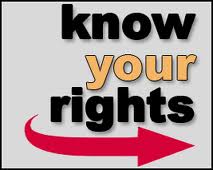 |
 |
 |
|
 |
 |
 |
|
|
General Guidelines by Province To the right you will find general guidelines on key points regarding rest periods and meal breaks, with links to some of the legislation. If you can't find the information you need or are wondering what your next step should be, we encourage you to visit our Get Help page. Quick Links Please visit our Resources by Province or Resources by Internet pages for further resources. Workershelp.ca is intended for informational purposes only and nothing here should be construed as legal advice. Workershelp.ca is a free service sponsored by: |
Rest Periods / Meal BreaksPlease note that due to significant changes in Provincial Employment Standards we are in the process of updating our website to reflect current standards. Note: For free assistance fill out our get help form.Rest periods, meal breaks, days of rest and eating periods are issues covered by provincial and federal employment standards legislation. All jurisdictions in Canada require that employees have a minimum period of rest or day off from work and most stipulate that breaks have to be provided after a certain number of hours at work. There is no legislation that mandates "coffee breaks." There is an extensive list of exclusions, exceptions, special circumstances such as emergencies, and distinctive accords such as averaging agreements that can affect when and how long your breaks or rest periods from work can be. In general, you are not paid for rest or eating periods and breaks. However, your employer might have to pay you if you are required to stay at your work station during that period. (Information about legislation covering hours of work in a day and/or week can be found on the Hours of Work page.) Determining your rights to breaks and time off work can be a difficult task. It requires careful reading of the appropriate section(s) of legislation and corresponding regulations. In addition there are numerous exceptions and exemptions that may need to be considered. Alberta
Read Legislation
• Your employer is required to give you at least one rest day a week. However, under certain circumstances, you could be required to work 24 days in a row, but that must be followed by four consecutive days off. • If you work in Alberta, your employer must give you a 30-minute rest period for a shift of more than five consecutive hours. You must be paid for the rest period if your employer insists you remain at the workplace during that break. British Columbia
Read Legislation
• Legislation in British Columbia provides for at least 32 consecutive hours off work each week. Should you be required to work during that rest period, your employer must pay you 1.5 times your regular hourly rate for each hour worked. You must also be provided with a minimum eight hours off between shifts. • Your employer must provide you with a 30-minute meal break if you have to work more than five consecutive hours. The break must be paid if your employer requires you be available during the meal break. Federal
Read Legislation
Note: There is no legislation requiring meal or rest breaks during a work shift.• The Canada Labour Code entitles employees to a minimum of one full day of rest per week, preferably a Sunday. • The code contains nothing about meal breaks or other rest periods. Manitoba
Read Legislation
• Manitoba requires that workers get at least one rest day a week. • Those employees who have worked for five hours must get a 30-minute eating or meal break. Anyone required to work an additional five hours must get a second 30-minute break. New Brunswick
Read Legislation
• Workers are entitled to 24 consecutive hours of rest every week, preferably on Sunday. • New Brunswick's Occupational Health and Safety Act permits a 30-minute meal break after five hours of work. Newfoundland and Labrador
Read Legislation
• A “Day of Rest” is provided for you each week if you are employed in Newfoundland and Labrador. • You are entitled to take a one-hour rest period after working five straight hours. Nova Scotia
Read Legislation
• Workers are entitled to a 24-hour rest period every seven days. • Nova Scotia legislation requires that you get a 30-minute break if you work more than five consecutive hours. If you work more than 10 hours in a row, you are entitled to take two 30-minute breaks, one of which may be split into two 15-minute periods. Ontario
Read Legislation
• Workers in Ontario are entitled to a minimum 11 consecutive hours free from work each day and eight hours between shifts if the total hours worked on the two shifts would be more than 13 hours. • You are entitled to 24 consecutive hours of rest each week or 48 hours free from work in a two-week period. • You must not work more than five consecutive hours without a 30-minute break. If you and your employer agree, you are permitted to split the break into two 15-minute periods. Prince Edward Island
Read Legislation
• Your employer must provide you with a minimum 24 hours of rest in a seven-day period and that day off should be Sunday if possible. • Legislation in P.E.I. entitles you to take a 30-minute break after five consecutive hours of work. Quebec
Read Legislation
• If you work in Quebec, your employer must provide you with a minimum of 32 consecutive rest hours each week. • You are entitled to take a 30-minute break after working five consecutive hours. You must be paid for those 30 minutes if you are required to remain at your work station during that rest period. Saskatchewan
Read Legislation
• Saskatchewan's labour laws require that you get one day of rest in a seven-day period if you work 20 hours or more a week. • Your employer must provide you with a minimum eight hours of rest in each 24-hour period of work. • You are entitled to a meal break of 30 minutes within every five hours if you work six hours or more.
|



